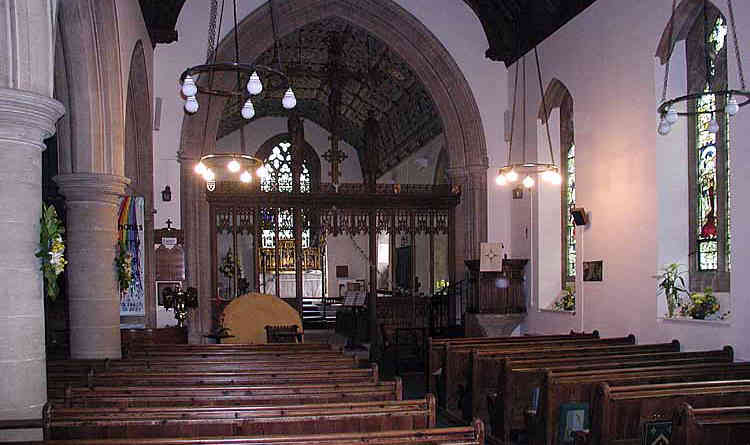I never thought I’d find a spiritual lesson while reading a family history magazine. But I did, in an article on the church in the 18th and 19th centuries.
And found that sometimes behaviour patterns recur in quite different situations.
Are you sitting comfortably?
Until the Reformation, English people stood in church, on cold, hard stone floors. A few churches had seats built into the walls, but otherwise, if you wanted to sit, you brought your own chair. And in 1558 anti Roman Catholic legislation (the Recusancy Acts) penalised those who didn’t attend Church of England services.
Protestant services became longer, more and more people brought their own chairs, and the wealthy were able to buy a licence to reserve a section of the church they most favoured. The best locations cost the most, and ministers and churches profited.
Soon the more affluent were able to purchase permanent box pews where they could sit in comfort and privacy. Meanwhile the poorer parishioners had to stand at the back, or in galleries without seats. Churchwardens were responsible for allocating seats annually, but there was great pressure by wealthy donors to retain their favoured positions.
In the 19th century a society was formed to upgrade churches and provide free seating for parishioners. More than 2 million free pews were provided via grants to more than 14 thousand churches to end the practice of pew rents.
All part of the bigger picture
In medieval England (and most of Europe) the church was just about the most wealthy and powerful social institution. Senior churchmen played a role in national government and could exert power over kings. The church owned or administered large estates and at some stages were required to provide armed knights for the king’s army.
The parish church was the focus of community life. This could have beneficial effects, as the church played an important part in education, health, law and order and social welfare. But it also led to the church being beholden to rich benefactors who funded local churches. And being powerful and wealthy, the church could attract people into the priesthood and ministry for wrong reasons.
Many of these unchristian aspects were slowly reformed, but it remained true into the nineteenth century that wealthy landowners retained a strong influence in the church and the church was part of the establishment. (It was an established pattern in many families that while the eldest son would inherit the estate and enter politics, the second son would join the army, the third son go into law, and the fourth son join the church.)
Jesus and the apostles said …..
Much of this is quite contrary to the teachings of Jesus and the apostles, who can sound almost socialist.
James 2:1-4.
“My brothers and sisters, believers in our glorious Lord Jesus Christ must not show favoritism. Suppose a man comes into your meeting wearing a gold ring and fine clothes, and a poor man in filthy old clothes also comes in. If you show special attention to the man wearing fine clothes and say, “Here’s a good seat for you,” but say to the poor man, “You stand there” or “Sit on the floor by my feet,” have you not discriminated among yourselves and become judges with evil thoughts?”
Jesus in Matthew 23:27-28, 6-7
“Woe to you, teachers of the law and Pharisees, you hypocrites! You are like whitewashed tombs, which look beautiful on the outside but on the inside are full of the bones of the dead and everything unclean. In the same way, on the outside you appear to people as righteous but on the inside you are full of hypocrisy and wickedness. …. they love the place of honor at banquets and the most important seats in the synagogues; they love to be greeted with respect in the marketplaces and to be called ‘Rabbi’ by others.”
Jesus in Matthew 6:33
“But seek first his kingdom and his righteousness, and all these things will be given to you as well.”
James 5:1-5
“Now listen, you rich people, weep and wail because of the misery that is coming on you. Your wealth has rotted, and moths have eaten your clothes. Your gold and silver are corroded. Their corrosion will testify against you and eat your flesh like fire. You have hoarded wealth in the last days. Look! The wages you failed to pay the workers who mowed your fields are crying out against you. The cries of the harvesters have reached the ears of the Lord Almighty. You have lived on earth in luxury and self-indulgence.“
Today?
Back then, the favouritism and priority given to the wealthy and the powerful (including the government) was pretty obvious. The radical teachings of Jesus and God’s care for the poor had been replaced by civil religion that supported the status quo.
Some times it seems like that today, though not quite as obvious.
Where I live (Sydney, Australia) I know of churches in wealthy areas that have fine buildings and facilities and extensive pastoral staff, while not far away in poorer suburbs are small churches in the same denomination struggling to pay more than a single minister and sometimes doing significantly more mission to their local community.
The wealth of some US televangelists is notorious – their model seems to be capitalism more than christianity.
Then there is christian support for politicians who support middle class greed and tax evasion by the wealthy – have they never read James 5?
In Australia, wealthy private schools (often church schools) have amazing sporting and technological facilities, often funded by government grants, while public schools in poorer areas have much less. Most private schools have scholarships and social awareness programs, but in many the scholarship students are stigmatised. Church schools end up reinforcing inequality, privilege and class distinctions.
Damaging the mission of God
This inequality is detrimental in three ways:
- Poorer churches and less advantaged christians are hindered in their mission to their local communities, which need it most.
- The more privileged christians and wealthier churches become comfortable and passive, and their mission stagnates.
- Outsiders see the inequality in the churches and the lack of concern for the disadvantaged, know that Jesus taught differently, and so justifiably reject the church’s message, because their talk isn’t being walked.
The temptation of an easy life is great.
You may also like these
Photo: The parish church of St. Lawrence at Bourton-on-the-Water, Gloucestershire, England, by Adrian Pingstone in Wikipedia.




